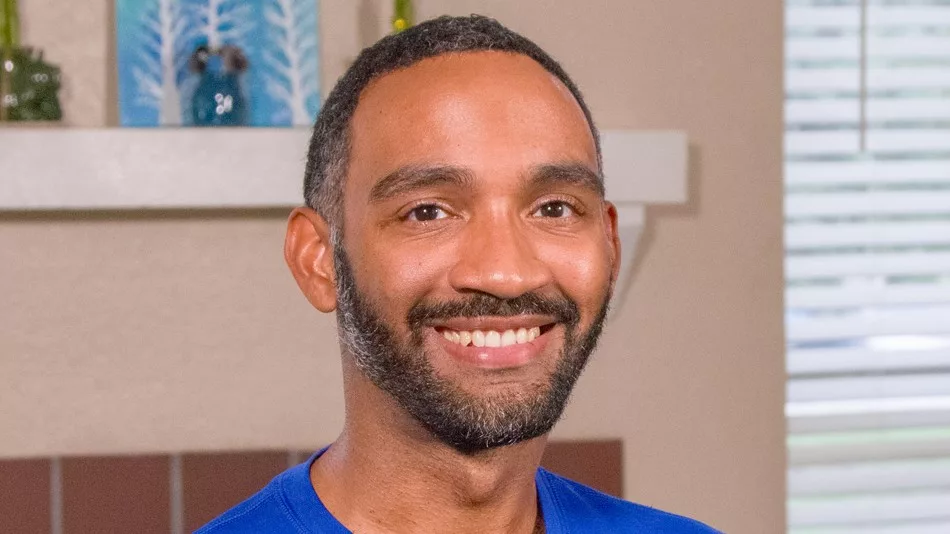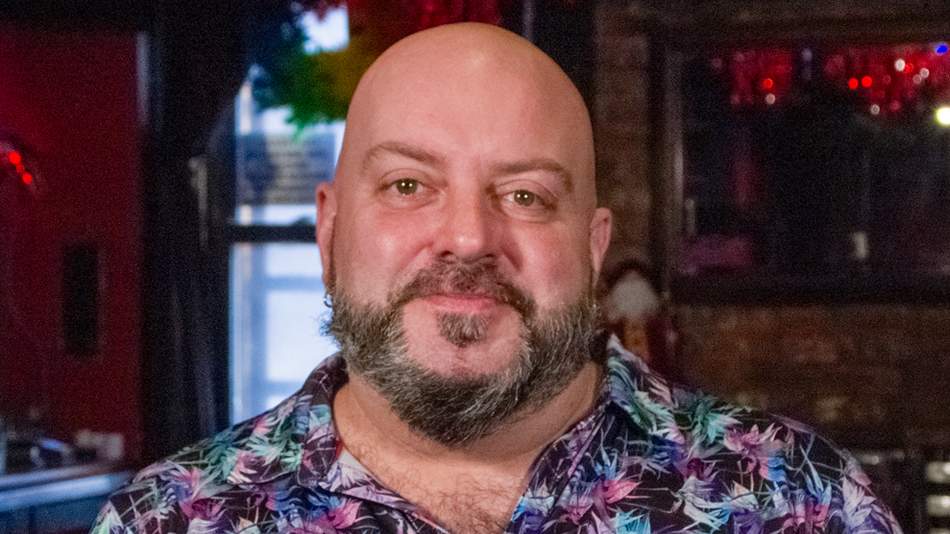I’m Greg Miraglia, and I’m from Moraga, California.
In 1978, I discovered law enforcement as a possible career. I got really excited about it and I had a chance to join a police cadet program as a freshman in high school in a smaller town called Walnut Creek in the East Bay area. But I remember walking in the door already knowing that I was gay and very deeply closeted because in 1978 you really couldn’t be out and survive anyway.
And I walked in the door to the police department and the very first… the very first hour of the first day I remember hearing a barrage of homophobic remarks. And these were coming largely from other teenagers, people that were in the cadet program, but there were adults in the room. There were police officers in the room that were our mentors, and they said nothing. And I discovered right away that there was no way that I could be out in this profession.
I graduated high school, I got hired by that department full time. I was super excited about that career. And that was in 1981, and that’s when the AIDS epidemic broke out. And I remember sitting in a patrol briefing and hearing the sergeant give us some training information about this disease that could kill you. And he said, “If you ever come in contact with anybody you think is even possibly gay, make sure you put on a mask and gloves.”
And he said, “If you ever come in contact with anybody you think is even possibly gay, make sure you put on a mask and gloves.”
And I was thinking to myself, here I am working with colleagues and everybody’s afraid. And if anybody knew that I was gay, they would see me as a threat and I knew I’d be fired and I would never be able to do this job.
I left my department, that department in 1988. I went to a larger city called Fairfield, and it was like stepping back in time 20 years. It was even more homophobic than the first agency. And so I knew now as a supervisor going into that agency, I had to really keep myself hidden.
So in 1992, I’d been at this agency now for four years, I’d already been working in law enforcement for 14 years, so I had a lot invested in this. And I was working directly for an assistant chief at the time. He called me to his office one day and I walked in the office and I could tell something was not right. He had a very serious look on his face, almost a nervous look on his face. I mean, I can still see it to this day.
So he told me to sit down and close the door, and he had a notepad out and he was taking notes and he said, “I’ve had a complaint from one of your colleagues and I have to investigate your lifestyle.” And I knew exactly what he meant by that. He wanted to find out if I was gay. Now, California did have employment protection for sexual orientation and gender identity at the time. And I knew that, and I don’t know still to this day where I got the courage and or the guts if you want to call it that, but I leaned forward and I just told him, I said, “You know what? You’re going down a very dangerous line of questioning, and if I ever hear another question about this again, I’m going to sue you.”
And I got up and walked out of the office terrified, but absolutely as angry as I’ve ever been. And the chief’s office was right across the hall, and I walked into his office and I slammed the door and he looked up and he said, “What’s wrong?”
And I told him what had happened, and he looked at me and said, “Well, Greg, if you are gay, it’s going to be very difficult for you to be an effective leader in this organization.” I was speechless. I thought, this is the chief of police telling me this. And I think he saw the anger in my face. And I also think he was smart enough to know that he may have said something that would’ve not been good for him.
And he said, “What do you want me to do about it?”
And I just said, “You’re going to make it stop. I don’t want to ever hear another word about this again. And if I do, I’m going to sue you, everything.” And I said, “I’m leaving and I’ll be back when I’m good and ready.”
And I stormed out. So after I left the chief’s office, I just didn’t know what to do. I was completely stunned by what had just happened. And I went to our employee assistance program, our police psychologist, who I trusted very intimately. I had worked with him a lot being the training and personnel manager for the agency for a while. And I told him what happened, and he never asked me if I was gay or not. He was very supportive. He said what happened was wrong, and I don’t know to this day, but I suspect he called the chief and said, “You just stepped in it and you better be careful.” Because I never heard anything else directly from any of my supervisors or the chief again.
So I left finally in 1998. I got into training and teaching full-time. And then in 2000, life changed. I met Judy Shepard, the mother of Matthew Shepard. And if you remember, he was the young man who was murdered in a pretty vicious hate crime in 1998. And I had a chance to bring Judy Shepard to Napa Valley College where I was working full-time at the time, to do a community presentation.
And one of the things that she used to always say was that the way we’re going to change hearts and minds is by sharing our stories. It started to really resonate with me. And every time she would say that, it resonated even louder and louder and louder. And I was getting pretty passionate about this work, and I started to realize that I had a story to tell. And if I really wanted to create some change of my own, that I needed to come out and share my story.
So in 2004, by happenstance, there was a student in one of my classes who I thought was gay, and I don’t know why I would make such a bad judgment today, but I decided that he was going to be the one I was going to tell. We sort of talked about getting together and talking about our mutual stories a couple of times, and then we agreed to meet after school and at a restaurant. And so we met and I came out to him and he was incredibly supportive, very, very helpful, and nothing bad happened to me.
He was a great mentor and a great support moving forward, and gave me some advice about how to tell my parents and the other people in my life. My parents were very supportive, and all my friends were very supportive. I never heard a negative word to my face. I clearly underestimated them.
So later in 2004, I met my now husband. We’ve been together ever since. And one of the things that he encouraged me to do was to write a book to tell my story. And that really is what started a lot of the new work that I’ve been able to do in helping law enforcement and helping other people come out and to enjoy an authentic life. And I’ve had some amazing opportunities from being out and being who I am. I started an LGBT studies degree program at the college that I work at, and I now teach that. I’ve had a chance to write a total of four books for law enforcement. And most recently, I got to speak at the FBI National Academy on LGBT issues for the first time in their entire history. They had never done a class on LGBT issues.
And none of that would’ve happened if I had stayed in the closet. And I think I’ve really been able to make Judy’s words that inspired me a truth. Trust your instincts, and don’t be afraid to be who you are. Live an authentic life.








Share